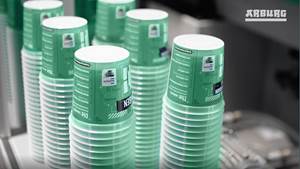All-Electric Plant Gets World-Class Results
In mid-2004, Delphi Connection Systems, part of Tier 1 automotive supplier Delphi Corp.’s Packard Electric operations, flipped the switch on a new 190,000-sq-ft, $58-million plant in Vienna Township, Ohio.
In mid-2004, Delphi Connection Systems, part of Tier 1 automotive supplier Delphi Corp.’s Packard Electric operations, flipped the switch on a new 190,000-sq-ft, $58-million plant in Vienna Township, Ohio. It was designed to set a new benchmark as a “world-class” molding plant. Two years later, the results are in: Vienna has delivered “unprecedented performance levels,” says Ken Ellsworth, manager of North American molding operations. It has helped Delphi retain its position as the largest supplier of interconnect products to the U.S. automotive industry.
Vienna, or Plant 47, was designed to build on the success of Delphi’s star facility in Cortland, Ohio, which opened in 2000 and became the template for all Delphi injection molding plants. The award-winning Cortland plant has 120 hydraulic presses and an advanced material-handling system that makes it possible to produce 1 billion precision-molded parts and housings a year with less than 1 ppm defect rate. “The goal of the Vienna plant was to achieve even higher levels of production than the landmark Cortland operation, with a wider material product mix, while reaching the same high standards in quality,” says Ellsworth.
In 2005, its first full year of operation, the Vienna plant produced 1.1 billion parts using 26 different resin families and 95 different material compounds, totaling 12 million lb of resin. The plant molded over 600 different part types in a wide range of sizes, with many having wall thicknesses under 1 mm together with large external features. At the same time, Vienna maintained a defect rate of just 0.8 ppm for nearly the entire year. “Just one glitch took us to single-digit ppm,” says Ellsworth.
Despite the large number of materials to handle and the high throughput, the Vien-na plant shipped more than 700,000 containers last year and attained better than 99.9% on-time delivery of parts to more than 100 customers. Compared with Cortland, Vienna scored a 10% reduction in molding cycle time and 28% lower energy consumption, even though the plant is 50,000 sq ft larger.
All-electric & automated
Just eight operators per shift are needed to run the plant’s 120 all-electric presses 24/7 at such a high performance level. Delphi installed Fanuc Roboshot Si-B all-electric presses (plus four more in a lab for tooling and resin trials) from Cincinnati Milacron, Batavia, Ohio. This was Delphi’s first experience with all-electric machines, and Milacron’s largest order in its history. It made the Vienna plant the largest all-electric facility in the world.
“The electric presses not only trimmed energy costs, but they eliminated costs of hydraulic fluid, hydraulic system maintenance, fluid storing, disposal, clean-up, and issues of potential spills,” says Ellsworth. Robots from Remak of North America, Itasca, Ill., handle the sprues, runners, and parts. Automated guided vehicles (AGVs) pick up parts from the machines and deliver them to shipping areas.
Delphi worked with Novatec Inc., Baltimore, to develop one of the world’s most sophisticated materials-handling systems for resin conveying, blending and drying. The system, with more than 16 miles of piping, handles up to 32 materials at a time.
The Vienna plant is split into two “regions,” with 60 presses producing parts from polypropylene and TP polyester, and another 60 presses molding similar parts from nylon and high-temperature materials. The materials-handling system uses barcode matching to ensure delivery of the correct material to the correct machine, and it controls and monitors all conveying, blending, and scrap regrinding operations.
Delphi “tweaked” the control system of the presses to network its molding operation with the general manufacturing computer system. All operators and support personnel have access to real-time information on orders, equipment performance, shipping schedules, material and parts inventory, quality is-sues, and more. Delphi is installing electric injection machines and implementing similar material-management strategies at a molding plant in Mexico. Its plant in Shanghai, China, is also being outfitted the same way, though Delphi will use Sumitomo all-electrics there.
Related Content
U.S. Debut for Slimmed Down Electric Machine
NPE2024: Arburg’s debut of the 310-ton Allrounder 720 E Golden Electric extends the tonnage range of the electric series and marks the first global press premiere outside of Germany.
Read MoreInjection Compression Molding as Alternative to Thermoforming
Arburg will show its all-electric Allrounder 720 A press utilizing injection compression molding to create thin-wall IML cups from PP.
Read MoreAll-Electric Injection Molding Machine Line Expands
Fakuma 2024: Engel unveils new e-mac 500 with “High” clamping drive and encapsulated toggle-lever mechanism.
Read MoreLS Mtron’s Outsized NPE2024 Presence Jump-Starts Ambitious North American Market Goals
The Korean maker of injection molding machines featured eight machines in its nearly 14,000-square-foot booth with additional presses at Yushin and Incoe’s booths, as it targets 20% market share.
Read MoreRead Next
Lead the Conversation, Change the Conversation
Coverage of single-use plastics can be both misleading and demoralizing. Here are 10 tips for changing the perception of the plastics industry at your company and in your community.
Read MoreFor PLASTICS' CEO Seaholm, NPE to Shine Light on Sustainability Successes
With advocacy, communication and sustainability as three main pillars, Seaholm leads a trade association to NPE that ‘is more active today than we have ever been.’
Read More



















